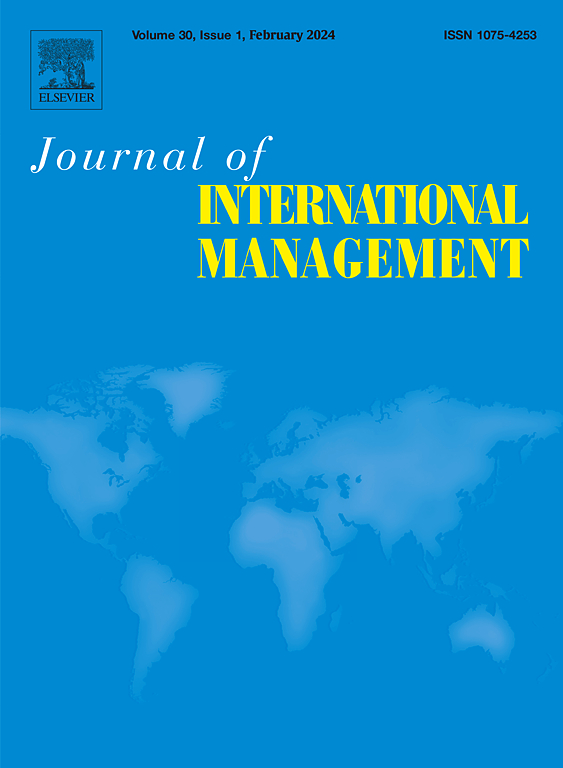A culturally contingent view of the RBV in SMES internationalization
IF 4.9
2区 管理学
Q1 MANAGEMENT
引用次数: 0
Abstract
This study advances a culturally contingent approach to the resource-based view (RBV) by theorizing how national culture may affect the ways SMEs evaluate their resource endowments before deciding to internationalize. Comparing 1060 SMEs from 4 advanced and 11 emerging and developing economies, and accounting for the SME's national culture, our study departs from universalistic assumptions about the role of resources as a barrier to SME internationalization. SME internationalization research has often emphasized nations' economic status to explain why and when firms expand globally; we demonstrate that its effects are conflated with culture, obscuring critical dynamics in the process. Our findings extend RBV theory by introducing “cultural resource valuation” as a key mechanism, highlighting, for instance, a more nuanced role for networking capabilities in supporting the successful internationalization of SMEs than previously argued. We conclude that both managers and policymakers must recognize this cultural contingency, as Western-derived generalizations may misalign with domestic trade imperatives in diverse contexts. Doing so offers both theoretical nuance and practical guidance for SME internationalization.
中小企业国际化中的RBV的文化偶然性视角
本研究通过理论分析民族文化如何影响中小企业在决定国际化之前评估其资源禀赋的方式,提出了一种资源基础观(RBV)的文化偶然性方法。通过比较来自4个发达经济体和11个新兴和发展中经济体的1060家中小企业,并考虑到中小企业的民族文化,我们的研究偏离了普遍认为资源是中小企业国际化障碍的假设。中小企业国际化研究往往强调国家的经济地位,以解释企业为何以及何时进行全球扩张;我们证明其影响与文化相结合,模糊了过程中的关键动态。我们的研究结果扩展了RBV理论,引入了“文化资源评估”作为一种关键机制,例如,突出了网络能力在支持中小企业成功国际化方面比之前认为的更微妙的作用。我们的结论是,管理者和决策者都必须认识到这种文化偶然性,因为西方衍生的概括可能与不同背景下的国内贸易需求不一致。这为中小企业国际化提供了理论依据和实践指导。
本文章由计算机程序翻译,如有差异,请以英文原文为准。
求助全文
约1分钟内获得全文
求助全文
来源期刊

Journal of International Management
MANAGEMENT-
自引率
9.80%
发文量
67
审稿时长
81 days
期刊介绍:
The Journal of International Management is devoted to advancing an understanding of issues in the management of global enterprises, global management theory, and practice; and providing theoretical and managerial implications useful for the further development of research. It is designed to serve an audience of academic researchers and educators, as well as business professionals, by publishing both theoretical and empirical research relating to international management and strategy issues. JIM publishes theoretical and empirical research addressing international business strategy, comparative and cross-cultural management, risk management, organizational behavior, and human resource management, among others.
 求助内容:
求助内容: 应助结果提醒方式:
应助结果提醒方式:


